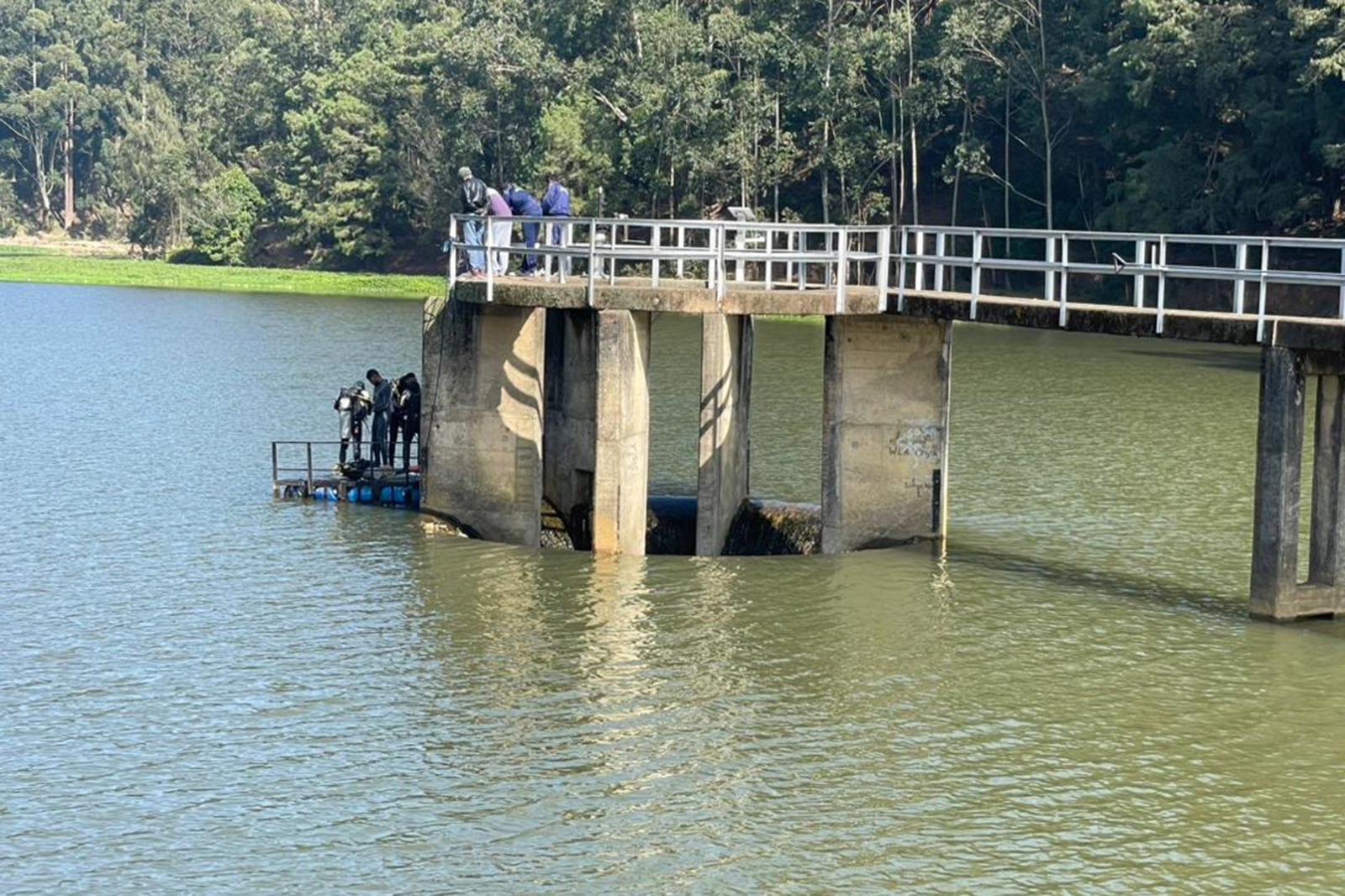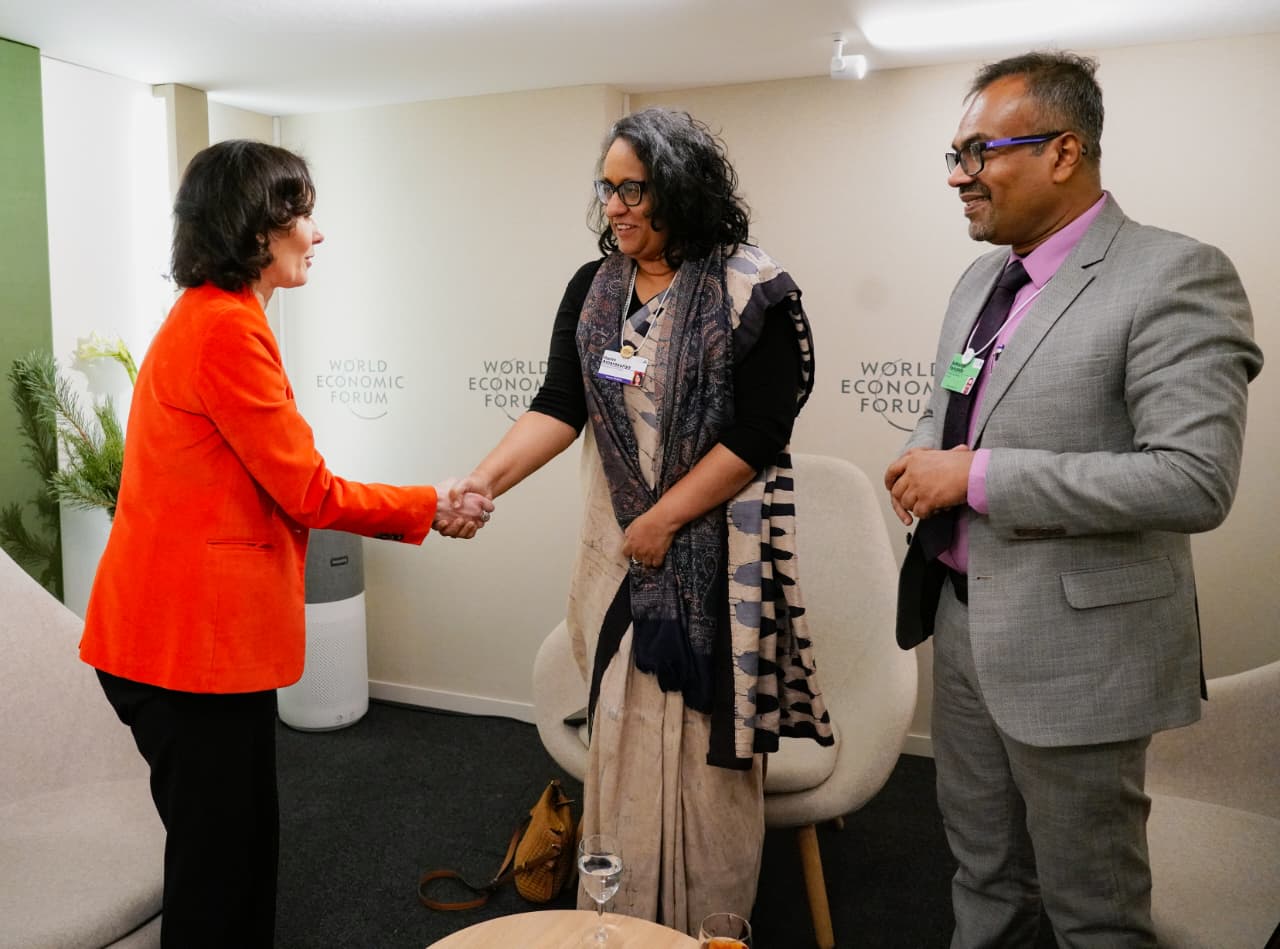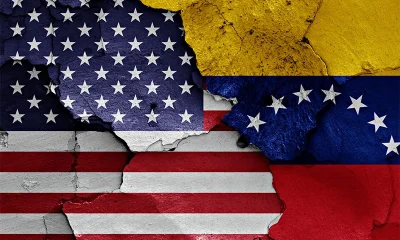News
Enhancing socio-ecological resilience in the Urban Wetlands of Colombo

The Small Grants Programme (SGP) of the United Nations Development Programme (UNDP) in Sri Lanka last week commenced a project empowering communities in compiling the strategy for protecting the urban wetlands, flora and fauna of the Colombo landscape while contributing towards uplifting livelihoods for women, unemployed or underemployed of the wetland communities.
A UNDP release said: It is estimated that more than 54 per cent of the global population lives in cities. As cities get increasingly crowded, the space needed for expansion becomes the overriding consideration. Studies have illustrated that during the twentieth century, wetland extents declined by as much as 70 per cent globally and continue today.
Sri Lanka ratified the Ramsar Convention on Wetlands in 1990, and in 2017 the parties to the Convention declared ‘Wetland City Accreditation’ for cities which are located near wetlands, to conserve and encourage the sustainable use of urban wetlands. Colombo is the only capital city among eighteen selected worldwide, and the only South Asian city to be declared a wetland city in 2018, breathing new life into the Colombo wetland conservation efforts.
The Small Grants Programme (SGP) of the United Nations Development Programme (UNDP) in Sri Lanka, funded by the Global Environment Facility (GEF), has the overall goal of enabling community organizations to take action for adaptive landscape management and collective decision making to build socio-ecological resilience. Between 2017 and 2021 through its Sixth Operational Phase, GEF-SGP provided grants to 10 community organizations within the landscape to minimize further disturbance to wetland systems by human interventions, through a participatory, multi-stakeholder, landscape management modality, aimed at conserving biodiversity, optimizing ecosystem services, managing land (particularly agro ecosystems), water and mitigating climate change.
Speaking at the event, Dr. Anil Jasinghe, Secretary to the Ministry of Environment stated, “The GEF-SGP approach looks at the landscape as a whole, and the preservation of the wetlands is done using the involvement of people themselves. Therefore, communities are empowered to conserve the environment while engaging in their livelihoods. However, if we don’t get communities living in the areas actively involved in the preservation of habitats while taking livelihoods forward, any work towards wetland preservation will not be successful.”
Currently, over six wetland sites are being developed in the Colombo Metropolitan Region, which covers an area of over 20 km2, amounting to 2.9% of its total land area. The Thalawathugoda wetlands, now known as ‘Diyasaru Park’, and the Beddagana wetlands, renamed ‘Bird Park’, are popular places of recreation for walking, bird watching and study tours. The historically important Thalangama Tank has nearly 180 farmers cultivating over 200 acres of paddy supported by the tank. Clearing and networking canals around the city and preserving land close to the city centre in Kotte, Rajagiriya and Kolonnawa are admirable attempts to conserve biodiversity with attention paid to the links between hydraulics and ecology allowing better protection of fragile wetland diversity.
Wanasarana Thurulatha Swechcha Society (WTSS), Public Interest Law Foundation (PILF), Emotional Intelligence and Life Skills Training Team (Gte) Ltd., (EILS), Surakshi GTE Ltd, Organization for Aquatic Resources Management (OARM), People to People Volunteers (P2P), Small Cat Advocacy and Research (SCAR), Centre for Environmental Justice (CEJ), Center for Sustainability, University of Sri Jayewardenepura (CFS/USJ), Human Development Foundation of Sri Lanka (HDFSL), were all grantees selected to carry out coordinated community projects in the landscape to generate ecological and socio-economic synergies that produce harmonized and long-lasting environmental benefits, increased social capital, and substantial benefits to local communities.
Congratulating the grantees on their success, Malin Herwig, Officer in Charge, UNDP in Sri Lanka noted, “This planet is our only home. It is vital we safeguard the health of its atmosphere, the richness and diversity of life on Earth, its ecosystems and its finite resources. UNDP is committed to leading these cooperative efforts, because the only way forward is to work with nature, and not against it. Sharing best practices on community-based approaches with the intention of further development and replication beyond its borders at forums such as this today, is an important step in looking beyond to ensure sustainability. Together we can ensure that our planet not only survives, but thrives, because we have Only One Earth.”
The initiatives implemented by the project have empowered communities in compiling the strategy for protecting the urban wetlands, flora and fauna of the Colombo landscape while contributing towards uplifting livelihoods for women, unemployed or underemployed of the wetland communities.
News
PM returns to the island

Prime Munister Dr Harini Amarasuriya returned to the island this (23rd) morning after attending the World Economic Forum in Davos, Switzerland,
News
Navy divers restore sluice gate of Bomburuella Reservoir

The Sri Lanka Navy successfully conducted a diving operation on 19 Jan 26 to inspect and restore the sluice gate of the Bomburuella Reservoir.
Acting on a request from the Department of Irrigation, the Sri Lanka Navy deployed a specialized diving team from the Western Naval Command, for the urgent requirement.
Through concerted effort, the Navy divers successfully cleared accumulated debris, including a significant quantity of wooden fragments, which had impeded the sluice gate mechanism.
News
PM holds High-Level meetings with EU, UNDP, and corporate leadership at World Economic Forum

Prime Minister Dr. Harini Amarasuriya held a series of high-level bilateral meetings on Wednesday [January 21] on the sidelines of the World Economic Forum in Davos, Switzerland, engaging with representatives of the European Union, the United Nations Development Programme, and the global private sector.
The Prime Minister met with Hadja Lahbib, European Commissioner for Preparedness and Crisis Management. During the meeting, she expressed Sri Lanka’s appreciation for the support extended by the European Union and its member states following Cyclone Ditwa. The Prime Minister also briefed the Commissioner on the key findings of the World Bank’s GRADE report and requested continued EU support for Sri Lanka’s development and recovery efforts.
Prime Minister Amarasuriya also met with Alexander De Croo, representing the United Nations Development Programme. She expressed appreciation for the longstanding partnership between Sri Lanka and the United Nations and acknowledged the UN’s support in flood relief and livelihood assistance. The Prime Minister noted that, following the mandate received at the parliamentary election, the government is focused on meeting public expectations through national rebuilding grounded in public trust and good governance. She further reaffirmed the Government of Sri Lanka’s commitment to strengthening social protection systems and safeguarding vulnerable communities.
In addition, the Prime Minister met with Robert M. Uggla, Chairman of A.P. Moller Holding. The discussion focused on engagement with the private sector and potential areas of collaboration.
These meetings reflected Sri Lanka’s continued engagement with international partners and global stakeholders to support recovery, development, and long-term economic stability.
[Prime Minister’s Media Division]
-

 Editorial6 days ago
Editorial6 days agoIllusory rule of law
-

 News7 days ago
News7 days agoUNDP’s assessment confirms widespread economic fallout from Cyclone Ditwah
-

 Editorial7 days ago
Editorial7 days agoCrime and cops
-

 Features6 days ago
Features6 days agoDaydreams on a winter’s day
-

 Features6 days ago
Features6 days agoSurprise move of both the Minister and myself from Agriculture to Education
-

 Features5 days ago
Features5 days agoExtended mind thesis:A Buddhist perspective
-

 Features6 days ago
Features6 days agoThe Story of Furniture in Sri Lanka
-

 Opinion4 days ago
Opinion4 days agoAmerican rulers’ hatred for Venezuela and its leaders













